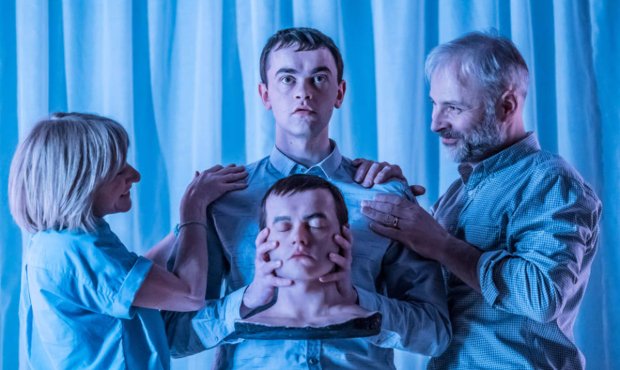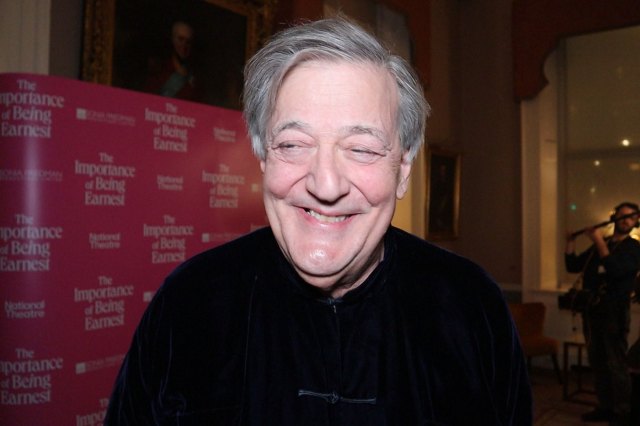Review: Instructions for Correct Assembly (Royal Court)
Thomas Eccleshare’s new play opens at the Royal Court

© Johan Persson
The young playwright Thomas Eccleshare has come up with an intriguing idea for his first play at the Royal Court. What would happen if you could buy a flat-pack kit to make a boy? Would there always be a screw missing? Or could you create the perfect child with the right tools and the ability to programme him?
Things start badly, on Cal Dyfan's clever set, which pinions anxious parents Max (Jane Horrocks) and Harry (Mark Bonnar) in a little box of their own, framed by paper sunflowers, as a conveyor belt brings the parts to create their wonder boy. First there's the usual argument about who is in charge of the instruction manual; then the frustration of missing parts. "I paid for something perfect," Harry says to the supplier on the phone, while listing missing components that include a ball bearing, a glass eye and three toes.
But when the boy emerges in the perky shape of Jãn (Brian Vernel) he fills an aching gap in the couple's lives because – as becomes increasingly clear – they have lost a son called Nick (also played by Vernel) who led a life that disappointed their expectations.
Hamish Pirie's production is sure of touch and clever; with the help of illusionist Paul Kleve and Dyfan's inventive set, which opens up as the play progresses, he creates wonderfully subtle and funny effects. The scene where Vernel's talking head appears on a workbench while Harry makes adjustments is a particular pleasure. There's also much fun to be had with malfunctioning programmes, as Vernel – wonderfully adept at switching persona in the blink of an eye and at the zap of a remote controller – runs through the gamut of male behaviour from cheeky posturing to compliant charm.
The writing is sharp and intelligent, probing every parent's deepest fears about their failures of nurturing, noting cannily the way that parental attitudes are transmitted as if by osmosis – though here they are passed on by a programme that loads your "walking legacy" into the cloud. The way that their hopes and dreams for real son Nick merge into their aspirations for the new android model is neatly managed.
But Eccleshare doesn't take his ideas quite far enough. The robot who is, and is not, a human is a fairly well-worn genre (see Westworld, Blade Runner and the rest) as is the grief and longing that can produce an imaginary child (not least in Who's Afraid of Virginia Woolf?). Colliding the two is a good notion, and Eccleshare is particularly strong on the weight that parental expectations place on an adolescent. Yet he doesn't spring many surprises; the end, when it comes, is one of two inevitable conclusions to the set-up.
Interesting threads – Nick's relationship with his over-achieving friend Amy, a suggestion that the need for conformity is crippling the whole of society – are introduced but not much developed. There are however many moments of high comedy, particularly during the dinner party when Laurie and Paul, the definition of pushy parents, brag about their offspring's achievements and Jãn tries to rise to the occasion.
Bonnar and Horrocks beautifully mine the subtle sense of loss that drives their actions. She has one devastating scene where she confronts Nick and there is a lovely moment when they all lie quietly together, watching an imaginary television, which conjures precisely the happy home life that they both long for. He's brilliant at conveying warmth, hope and despair in a single moment. But the roots of their family breakdown are never fully explored.
It's a play that never loses the attention, yet the intricacy of its structure is as narrow as the conveyor belt that dominates a lot of the action. Its one-note satire doesn't quite connect with the human heart; rather like the flatpack boy it imagines.

















